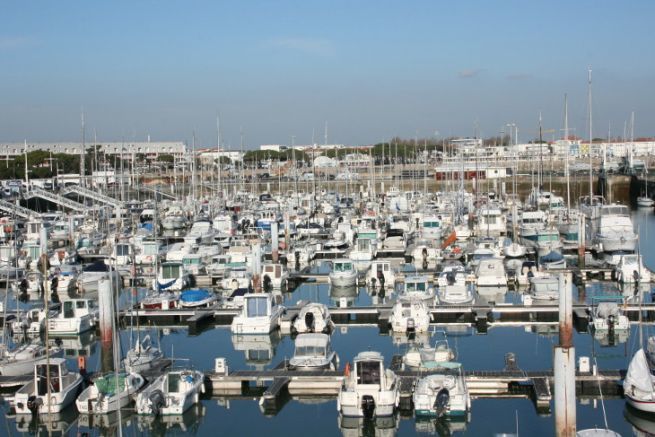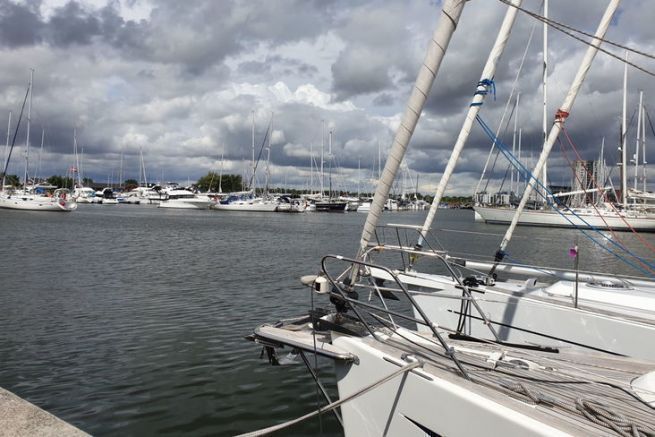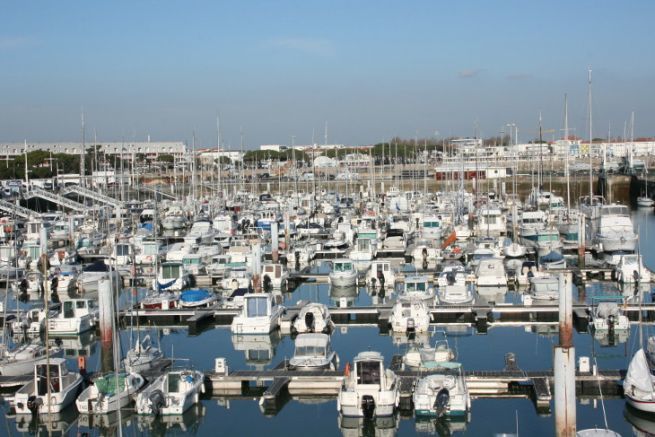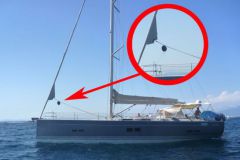Surrounded by certain tax and property law principles, the establishment of a nautical condominium requires the advice of an expert. It is therefore Master Nicolas Oréal We have contacted the notary in Ille-et-Vilaine so that he can give us his recommendations, both as a man of law and as a boater.
Indeed, Nicolas is a boater and he likes it. He is a boat patron on the one hand, he is also the happy owner of a Formula 18 and a Leader 6.35.
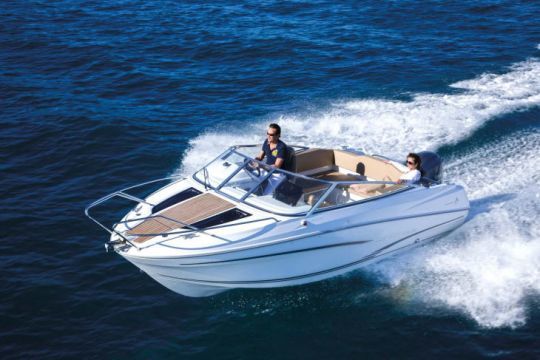
Old law for modern needs
The Notary explains the basic principles of boat ownership " There are several ways to own a boat. It can be a joint ownership - all co-owners are equally responsible - or a commercial type company. Then there are the principles laid down by the law of 3 January 1967. This law was created at a time when multi-owner boats were fishing or merchant navy vessels, rarely pleasure boats ".
It is therefore this law, which is more than 50 years old, which governs the minimum rules in undivided ownership. In the absence of a co-ownership contract, the provisions of this law will apply. " It is important to " insists the notary " to put in place a condominium by-law at the beginning of the condominium project. It is necessary that all the tenants [Editor's note: this is the name of the holders of shares in a boat] all agree, of course, and sign this regulation. "
The need for a notarial act
We are all accustomed to the establishment of notarial acts. Whether it is the conclusion of a real estate purchase or a marriage contract, it is in front of the notary that we go for the major acts of our lives as citizens. The same is true for the establishment of a boat co-ownership, as explained by Maître Oreal: " The interest of a notarial act is to put a date certain as to the establishment of this structure. It is important that this deed establishes the object of the joint ownership (is it a boat, an armament...). Sometimes, to make sure that the shared object is well defined, the intervention of a nautical expert can be useful. "
The content of this act must meet certain forms and standards: " At a minimum, the deed must include the name (it is a contract) of the co-ownership, the location of the home port and the duration of the life of this entity. Then, this contract establishes the tasks and obligations of each co-owner. Finally, it defines the end of the co-ownership and the way it will be dissolved. "
Establish the operating principles of the co-ownership
The condominium is a living structure and the owners may want to leave, sell their shares or mortgage all or part of it. " The contract of co-ownership makes it possible to define all the elements relating to the life of the structure and to avoid blocking situations. This is one of the main, if not the main, function of the notary. He is competent to accompany you and to foresee all possible situations. "
It should be noted, however, that the emoluments that the notary will have to charge are, in this case, unregulated and will correspond to his working time and that of his employees, clerks and editors. According to our research, and without this constituting an advertisement, the rates - variable according to the offices and departments - for a "classic" co-ownership are less than 1,000 euros.
The manager, a capital element of the co-ownership
The manager is the key person of the co-ownership. The notary insists on his importance. " The existence of the manager, above all, must be stipulated in the contract of co-ownership. It does not necessarily have to be one of the owners, he can be completely external to the structure in terms of shares in the boat. In addition to his existence, the manager must be appointed and his powers framed. "
The lack of a manager - which is legally possible - is a dangerous heresy. " If there is no manager, all the co-owners are managers and responsible for the debts of the co-ownership. If one of the co-owners holds more than 50% of the shares of the boat, he will be indefinitely - and his heirs as well - responsible for the debts of this structure. "
The existence of the manager - a result of the existence of the condominium - is a guarantee of good relations too. " Often, when there are expenses inherent to the boat, the distribution of royalties is complicated. The function of the manager is then to come back to the contract, to call the charges and to report on the use of the paid funds. This is a guarantee for each tenant who has paid his due not to be claimed a portion of the debt in question that is not his responsibility. "
Finally, because foreseeing the worst things does not cause them: " This contract is important in case of death of the manager to continue to see the functioning of the condominium without having to go through the judge. The functioning of this entity is not only an administrative state, it includes for example the right to use the boat, which will be suspended as long as the life of the whole is suspended to the decision or order of a judge "which, as it stands, can last several months or worse.
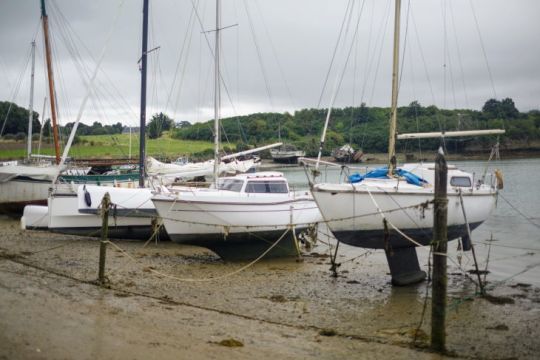
Legalize the document
Going before a notary is an assurance given to all the parties involved that everything will go as smoothly as possible in the life of their co-ownership. It is, for example, the only way to ensure that the patrimonial aspect will be respected. It is also the only way to ensure that none of the tenants is prohibited from managing the property or is subject to an overindebtedness measure.
" It is the notary's responsibility to verify the legal status of each signatory, first and foremost their identity, but also their capacity to sign. Absence of a protective measure [Editor's note: guardianship or curatorship] or judicial conviction that would render his signature invalid " explains Nicolas Oreal. " This contractual document becomes enforceable in the name of the manager, for example against a third party who would be responsible for an accident against the boat. "
If there is no registered contract, things will get more complicated
This contract has legal value for the co-contractors (the lessees) on the one hand and for the rest of the " community ". It establishes the existence of a structure whose purpose is to manage and share this boat among several people.
It is not mandatory, but its absence will cause the common law to apply at the slightest difficulty. And, often, as Maître Oreal says " we [Editor's note: notaries] we are too late and only serve to direct the plaintiff to a lawyer to go to court and have a judge rule on the law, whereas the issue in question could have been easily addressed in a condominium contract. "
Things become even more complex to manage if the death of a tenant is added to the lack of a contract: " The contract of co-ownership will define the rights between the heirs of the deceased. Some will want to sell their shares of the boat while others will want to use their quirate. All these points will be part of the contract of co-ownership which will have been established before the notary "Nicolas insists. " Keep in mind that the value of a boat makes it a major asset in an estate and that friends from the past may become less inclined to good relations if things are unclear. "
It is therefore the judge who, as a last resort and in the absence of a deed, will have to decide. With a law that is old and not adapted to our practice, it will go to the jurisprudence " which is particularly rare in the field "explains the notary. A losing choice every time!
If a concluding sentence was needed, the notary has found it: " Co-ownership before the notary is the guarantee to take pleasure in the use of the boat ."
Duly noted?
